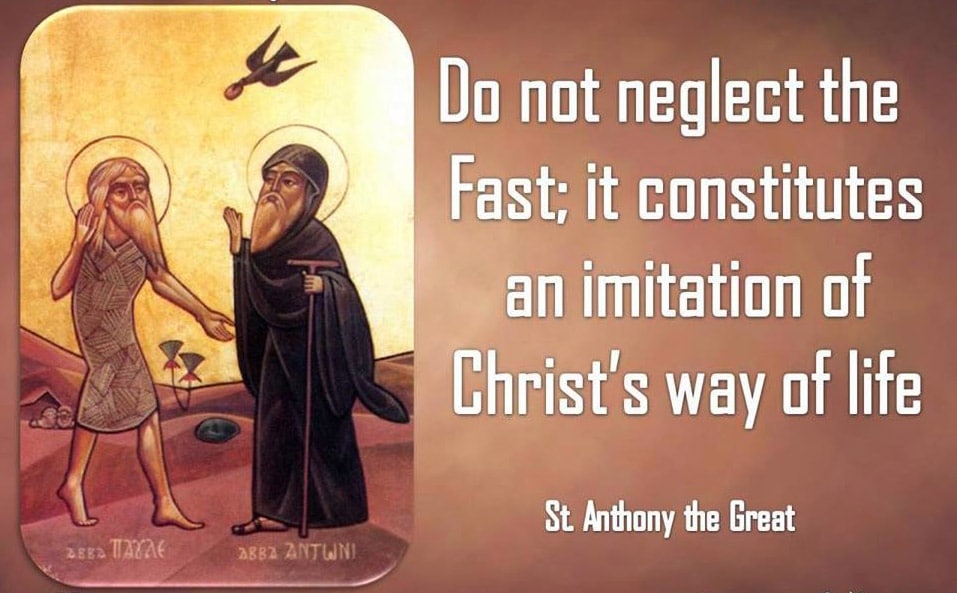Great Lent is also called the Great Fast. We know that the Melkite Church teaches us that several times a year we fast. One of the Melkite priests listed the differences in fasting. For more information read the texts in the Melkite calendar on fasting. What does it mean to fast?
Fasting
Fasting is more than “giving something up”, but it’s about depriving yourself of something in order to rely on God for true dependence. Food is the basic example; as we have an overabundance of food, but we can indulge in expensive tastes. Seafood is expensive, which means that it also counts to fasting.
What Type of “Faster” are you?
Here is a list of the different “levels” of fasting, starting with the minimum and going to more advanced. If you haven’t done a full fast before, I recommend that you start off small, then work your way up throughout the years. However, challenge yourself! Don’t settle for the minimum.
The time frame for 2024 is: Monday, February 12th to after Pascha (March 31st). Exceptions for fish are: Annunciation (March 25th) and Palm Sunday (March 24th). The sick, pregnant, and young children are exempt, but we encourage fasting of some sort.
Catechumen: Fast from meat; Neophyte: Fast from meat and dairy.
Basic: Fast from meat and dairy (Every day); consume no food or drink from midnight to noon (Monday to Friday).
Advanced: Fast from meat, dairy, alcohol, and oil (Every day); consume no food or drink from midnight to noon (Monday to Friday).
Monastic: Fast from meat, dairy, alcohol, and oil (Every day); consume no food or drink until evening, then eat a small meal (Monday to Friday).
Advanced Monastic: Monastic rules, plus drink only water the first day, known as “Clean Monday” (Monday, February 12th).
Expert Monastic: Advanced Monastic rules, plus drink only water Good Friday and Holy Saturday (Friday, March 29th and Saturday, March 30th)
